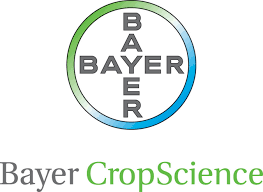Monday, 23 February 2026

EBITDA before special items at Crop Science came in at 172 million euros, representing an almost five-fold increase against the prior year in the third quarter, which is a seasonally low quarter for the agricultural business.
The Bayer Group remains well on track following its performance in the first nine months of the year. Speaking on Wednesday while presenting the company’s Quarterly Statement for the third quarter, CEO Bill Anderson highlighted the resilience of the agricultural business and the Pharmaceuticals Division’s topline, while acknowledging that Consumer Health is navigating an increasingly challenging market environment. “Overall, in a pivotal year, we’re in a strong position to deliver the 2025 Group guidance we upgraded last quarter,” he said.
In the agricultural business (Crop Science), sales increased by 1.3 percent (Fx & portfolio adj.) to 3.858 billion euros. The division registered significant gains at Corn Seed & Traits, with sales up 22.4 percent (Fx & portfolio adj.) thanks to higher volumes in all regions. Growth at this strategic business entity was mainly driven by higher planted area in North America and a solid start to the season in Latin America. Business was also up at Herbicides, which saw sales rise 2.8 per cent (Fx & portfolio adj.). Growth was primarily fuelled by higher volumes for non-glyphosate-based products, while sales of glyphosate-based products came in at the prior-year level (Fx & portfolio adj.). By contrast, the division recorded declines at Soybean Seed & Traits and Insecticides as anticipated, with sales falling 9.6 percent and 9.3 percent (Fx & portfolio adj.), respectively, due to regulatory headwinds impacting Soybean Seed & Traits in the United States and Insecticides in Europe.
EBITDA before special items at Crop Science came in at 172 million euros, representing an almost five-fold increase against the prior year in the third quarter, which is a seasonally low quarter for the agricultural business. Earnings growth was mainly driven by a decline in the cost of goods sold as well as cost savings generated by efficiency programs. By contrast, there was a negative currency effect of 21 million euros (Q3 2024: positive currency effect of 32 million euros). The EBITDA margin before special items rose by 3.6 percentage points to 4.5 percent.
Last week, the Plenexos™ insecticide was launched in Latin America, highlighting the division’s focus on innovative crop solutions, Anderson explained. In addition, the company has further reduced its net financial debt, he noted, and Dynamic Shared Ownership is generating returns, with the operating model delivering benefits on the top and bottom line. “Our organization continues to get leaner and more efficient, and we’re seeing benefits in terms of speed and focus.”